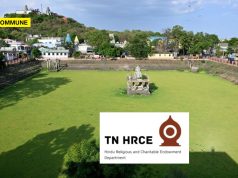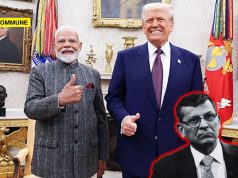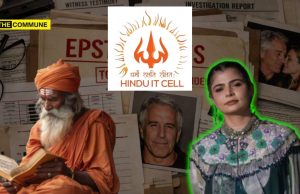
Former US State Department official Mike Benz has alleged that the United States actively interfered in the domestic politics of multiple nations, including India and Bangladesh, through media influence, social media censorship, and funding of opposition movements. According to Benz, US-backed agencies have used democracy promotion as a cover to influence elections, destabilize governments, and align foreign administrations with Washington’s strategic interests.
Allegations Of US Interference In India’s 2019 General Elections
Benz claims that elements within the US foreign policy establishment, including USAID, think tanks, and major technology companies, manipulated online discourse to influence India’s 2019 general elections against Prime Minister Narendra Modi and the BJP. He asserts that these groups collaborated to shape the election narrative by promoting the idea that Modi’s political success was driven by misinformation, creating the basis for widespread censorship.
According to Benz, US-backed entities framed Modi’s supporters as purveyors of fake news to justify intervention in India’s digital space. He alleges that multiple organizations, including those linked to USAID, worked with major international media outlets and digital forensics groups to produce reports portraying India as facing a severe misinformation crisis. This, he argues, provided the pretext for restricting pro-Modi narratives on social media.
Benz further claims that the US State Department exerted influence on major tech companies such as Facebook, WhatsApp, YouTube, and Twitter to curb pro-Modi content. He points specifically to WhatsApp’s decision in January 2019 to limit message forwarding in India as a deliberate move to curb the BJP’s voter outreach efforts, as the party heavily relied on the platform for mobilization.
He also alleges that USAID and US-linked think tanks played an active role by funding counter-misinformation programs designed to suppress nationalist movements like the BJP. According to Benz, organizations such as the Atlantic Council and the Global Engagement Center pushed for greater content moderation under the pretext of tackling misinformation while targeting pro-Modi messaging.
Furthermore, Benz suggests that anti-Modi efforts within the US government were led by factions within the State Department operating independently of the Trump administration. Despite Trump’s strong relations with Modi, he claims that entrenched bureaucratic elements overseeing cyber policies coordinated censorship efforts with Big Tech, advising social media platforms on content moderation strategies that sought to weaken nationalist political movements globally, with Modi’s BJP being a major target.
I foretold all of this in a prophecy to India long ago 🔮 https://t.co/oi8dqrZQma pic.twitter.com/9bJx2t7BGK
— Mike Benz (@MikeBenzCyber) February 11, 2025
While Benz does not confirm direct coordination between US-backed entities and Indian political groups, he asserts that many counter-misinformation initiatives within India were likely funded by USAID or other US foreign policy arms. He suggests these organizations received financial and strategic backing to counter BJP’s digital outreach, influencing political discourse ahead of the elections.
Allegations Of US Destabilization Efforts In Bangladesh
Beyond India, Benz claims that the US also sought to influence Bangladesh’s political landscape, particularly by attempting to weaken Prime Minister Sheikh Hasina’s government. He suggests that Washington viewed Bangladesh’s growing economic and strategic partnership with China as a challenge to US regional influence.
Citing leaked documents, Benz alleges that US-funded organizations such as the National Endowment for Democracy (NED) and its affiliates devised plans to destabilize Bangladesh’s political situation. These strategies allegedly included recruiting activists, mobilizing minority groups, and leveraging cultural and ethnic tensions to create societal divisions.
One of Benz’s more unusual claims is that US taxpayer money was used to fund Bangladeshi rap music aimed at promoting anti-government sentiment. He suggests that these songs were strategically targeted at students and youth activists to encourage mass protests.
Benz argues that these actions align with previous US-backed movements in other countries, where soft power tactics, media influence, and funding of civil society groups have been used to create conditions conducive to political change.
Who Is Mike Benz?
Benz is a former US State Department official who served as Deputy Assistant Secretary for International Communications and Information Technology from 2020 to 2021. In this role, he was responsible for shaping US cyber policies and working closely with Big Tech companies. Before his government service, he worked as a White House speechwriter for President Donald Trump and practiced business law.
After leaving government service, Benz founded the Foundation for Freedom Online (FFO), a nonprofit dedicated to exposing digital censorship and the manipulation of online narratives by governments and corporations. Through his work with FFO, he began investigating USAID, the National Endowment for Democracy (NED), and other US-backed agencies accused of influencing political systems abroad. His research, based on leaked documents and insider knowledge, has positioned him as a whistleblower on how these entities allegedly engage in covert influence operations worldwide.
Broader US Influence In Other Nations
Benz situates these actions within a broader pattern of US influence operations worldwide. He claims that similar tactics have been used in countries where Washington sought to install or maintain governments aligned with its foreign policy objectives. He points to US involvement in Ukraine’s political upheaval, support for opposition leaders in Venezuela, and interventions in the Middle East and North Africa as examples.
According to Benz, these efforts typically involve a combination of media narratives, digital censorship, financial support for opposition groups, and diplomatic pressure. He suggests these actions are often justified under the guise of democracy promotion but ultimately serve strategic interests such as countering China’s influence, securing military footholds, or ensuring economic access.
Claims Of Independent Factions Operating Within US Foreign Policy
One of Benz’s key assertions is that these operations are frequently carried out by factions within the US foreign policy establishment that operate independently of the elected government. He alleges that Trump had little control over rank-and-file officials in the State Department, many of whom pursued policies contradicting his administration’s stance.
He suggests that these factions use a network of think tanks, media partnerships, and social media platforms to execute their strategies, sometimes without direct oversight from political leadership. According to Benz, this explains why efforts against Modi and Hasina were pursued even when Trump maintained good relations with both leaders.
If Benz’s allegations are accurate, they point to a pattern of US foreign policy that prioritizes strategic interests over the sovereignty of other nations. The claims suggest that under the banners of democracy promotion and misinformation control, the US may be influencing elections, destabilizing governments, and pushing for regime change when leadership does not align with Washington’s goals.
(With inputs from Times of India)
Subscribe to our channels on Telegram, WhatsApp, and Instagram and get the best stories of the day delivered to you personally.




